Do you seem to spend much of your GCSE lesson time cramming content and teaching exam technique?
And, despite this you might wonder why many pupils still struggle to remember key events?
Maybe its time for a re-think.
It is our belief at HRC that if history lessons focus on solving a puzzle about real individuals, pupils will be more interested. They will also be more likely to remember too.
There are many ways that we do this, one is to use memoirs – eyewitness accounts.
Memoirs are great for a number of reasons.
Firstly evaluating eye witness accounts are what real historians actually do. So using them helps you to show the historical method to your classes.
You can easily make this explicit to them
Another great thing about using memoirs is that people says surprising things. And because of this, they really do challenge our misconceptions about a particular time or event.
They make us and our pupils think.
Clearly we cannot use memoirs all of the time to teach the Germany course.
However, here are three simple worked up examples that you could add to this unit.
Using Memoirs to Challenge Misconceptions about life in Nazi Germany
I have always loved teaching this lesson. I first came across this interview with an ex-Nazi in the introduction to Laurence Rees’s Auscwitz book.
Rees spent many hours interviewing ex Nazis in the 1990s for his amazing documentary: The Nazis: a Warning from History.
What is fascinating, according to Rees, is that one guy who supported the Nazis found life under Nazi rule to be a really positive experience.
Some historians think that it was probably the case for many. There was considerable support for the Nazi regime.
According to Johnson and Reuband, ‘National Socialism did gain widespread popularity during the Third Reich.’ However, others explain it is difficult to find out as the Nazis banned free speech. They even locked people up for joking about the Nazis.
I found this debate as a great way in to giving an overview of the life in Nazi Germany section of the GCSE course.
I start the first lesson on this section with Rees and his interview with an ex Nazi as you can see here:
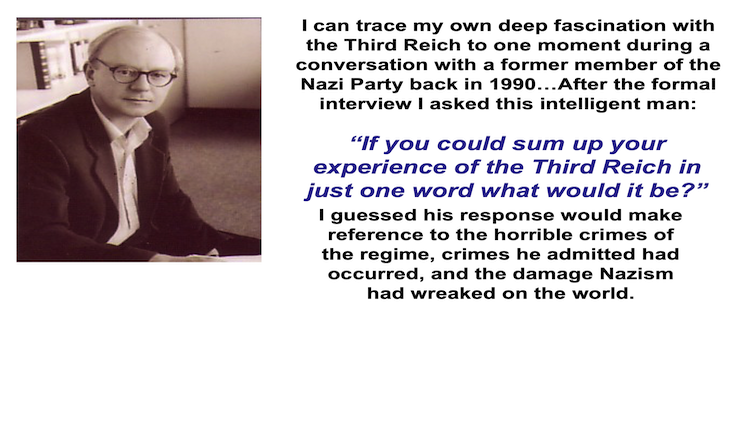
On interviewing this chap, Rees asked him how he might sum up his view of the Nazis. What one word would he use.
The word the man gave him was shocking:
Paradise!
Eh? This is really puzzling to pupils – and to many people. Why would this man describe life in Nazi Germany as ‘Paradise’?
Was it? To whom? and Why? all of these questions are intriguing.
The lesson then gives an overview of what life was like in Nazi Germany. The pupils find out information and classify it under these three headings:
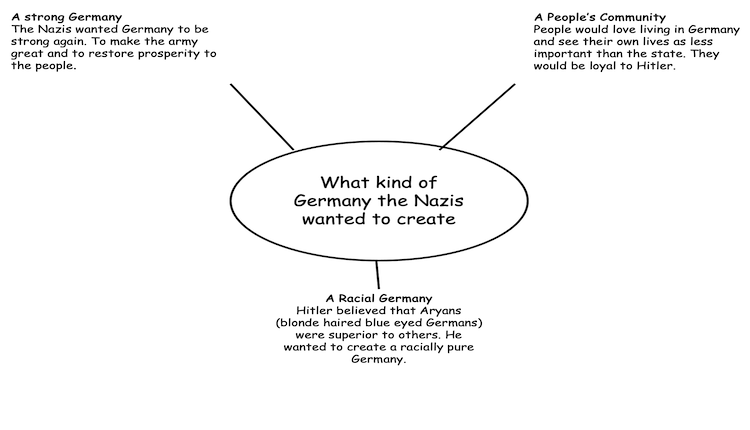
Next, they are introduced to a number of individuals. Using this newly gleaned knowledge about what kind of Germany the Nazis wanted to create, they place the different individuals on a ‘paradise’ – ‘hell’ continuum and justify why they have placed that particular person there.
Where might you place Gertha on such a spectrum?

What about Hanz?
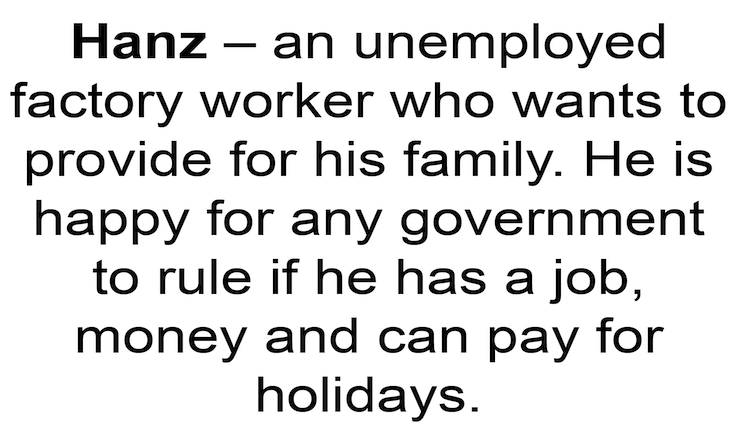
This is a great overview. The lesson can be downloaded here.
Using a memoir to analyse the emotional impact of the events of 1923
Sebastian Haffner’s Defying Hitler is another wonderful memoir.
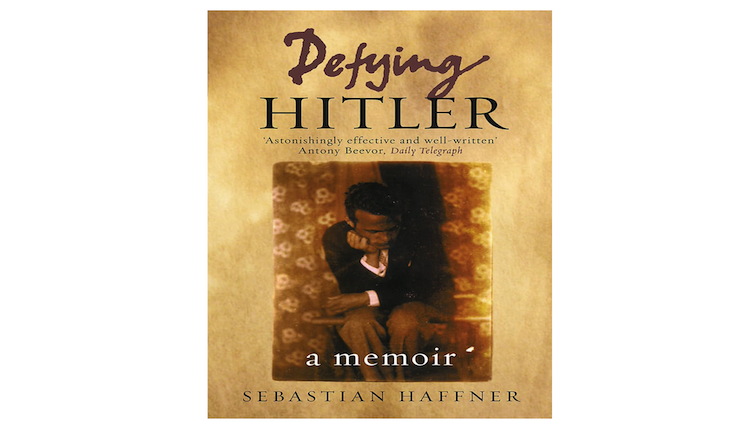
Haffner grew up in the Weimar Period. He disliked the Nazi regime. He felt that in the face of Hitler’s ascent Germany seemed as if “a million individuals simultaneously suffered a nervous collapse.”
He then left Germany for England in 1938, with his girl-friend and came to live in England.
I have used a fascinating section from Haffner’s memoir to get pupils to really think deeply about the impact of the crazy year of 1923.
Haffner says this:
Then came 1923. In that year an entire generation had its spiritual organ removed…conscience, reason, respect for the law. A whole generation learnt to do without such things.
Sebestian Haffner
This is a fascinating statement.
Once we have worked that what he really means via defining terms like ‘spiritual organ’, ‘conscience’ and ‘respect for the law’. The pupils can see that, according to Haffner, after 1923 a whole generation lost its soul, its ability to know right from wrong and its respect for the law.
We then investigate the events of 1923 and find out what actually happened: The Invasion of the Ruhr; Passive Resistance; Hyperinflation and the Munich Putsch.
Having armed the pupils with this knowledge, we then return to the quote and get the pupils to use this new knowledge to give examples of things that might explain why lost their soul, their respect for the law and their morality.
These include the effects of hyperinflation. Not just the financial effects.
It also shows them how profoundly the events of this year affected people – according to Haffner.
You can download this lesson here.
How typical was a young boy’s experience of School and the Hitler Youth?
This lesson focuses on the experience of one fascinating individual: Henry Metlemann.
Henry wrote his memoirs. Also handily for us, he appeared in BBC Schools History Episode about the young in Nazi Germany.
What is fascinating about his story is that, as a boy growing up under Nazi rule he was captivated Nazism. He was brainwashed as a boy and then went on to fight for the Nazis in World War 2.
He describes his brainwashing at his Hitler Youth group brilliantly in the episode.
The lesson starts with an oblique ISM:
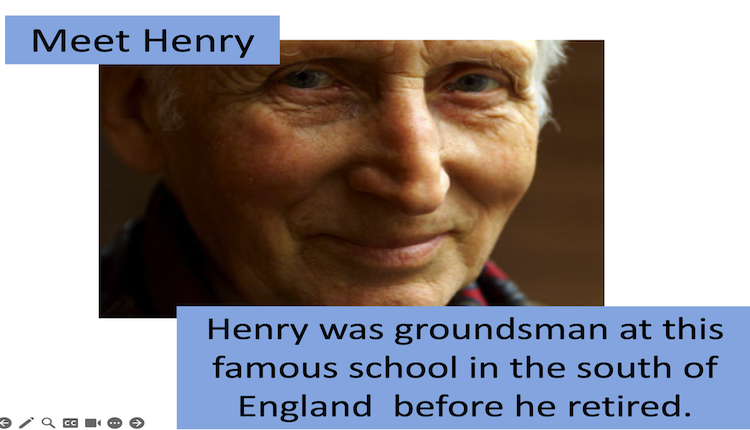
Having been introduced to this charming old man, you then let them into his secret:

The Enquiry Question asks: To what extent was Henry Metlemann’sexperience of growing up in Nazi Germany typical?
So now they have to find out what his experience was. The first 9 minutes of the documentary cover the Hitler Youth and education really well. Henry explains why he loved the Hitler Youth so much:
To help the pupils focus, I designed this ‘true or false’ worksheet for them to use whilst watching:
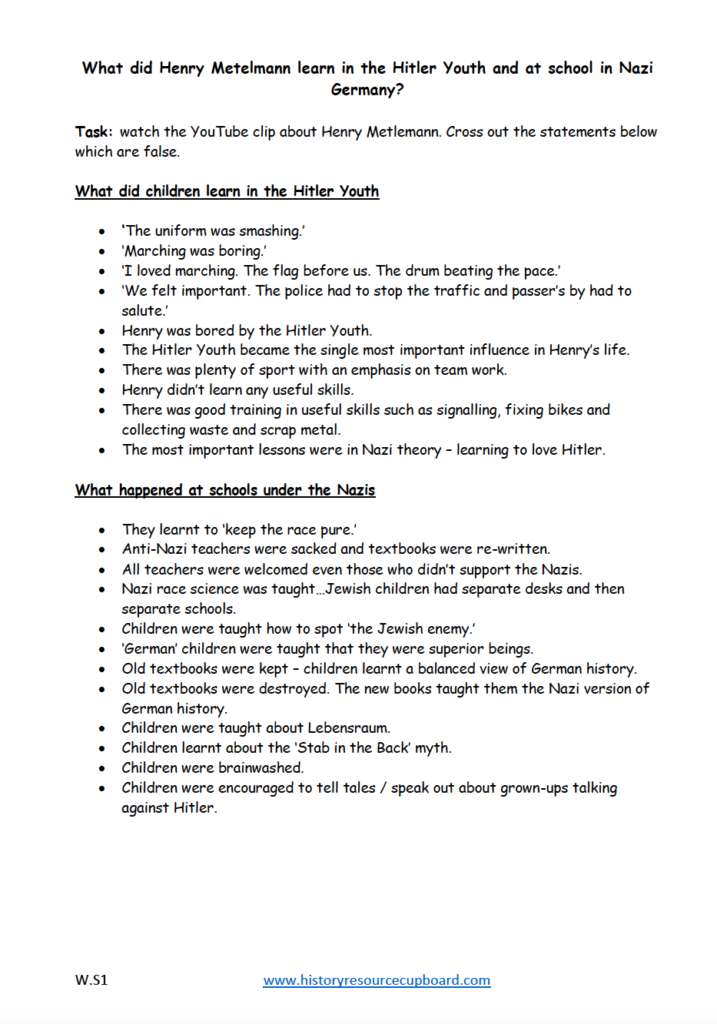
Having established Henry’s perspective, they go on and consider how typical he was.
They look at different clues to work this out. Then they draw their own conclusion.
Interestingly, Laurence Rees’s The Nazi Mind seems to suggest that the brainwashing of the young after 1933 was pretty damn effective.
You can download the Henry Metelmann lesson here.
To access loads and loads of free resources sign up as a basic member here.


